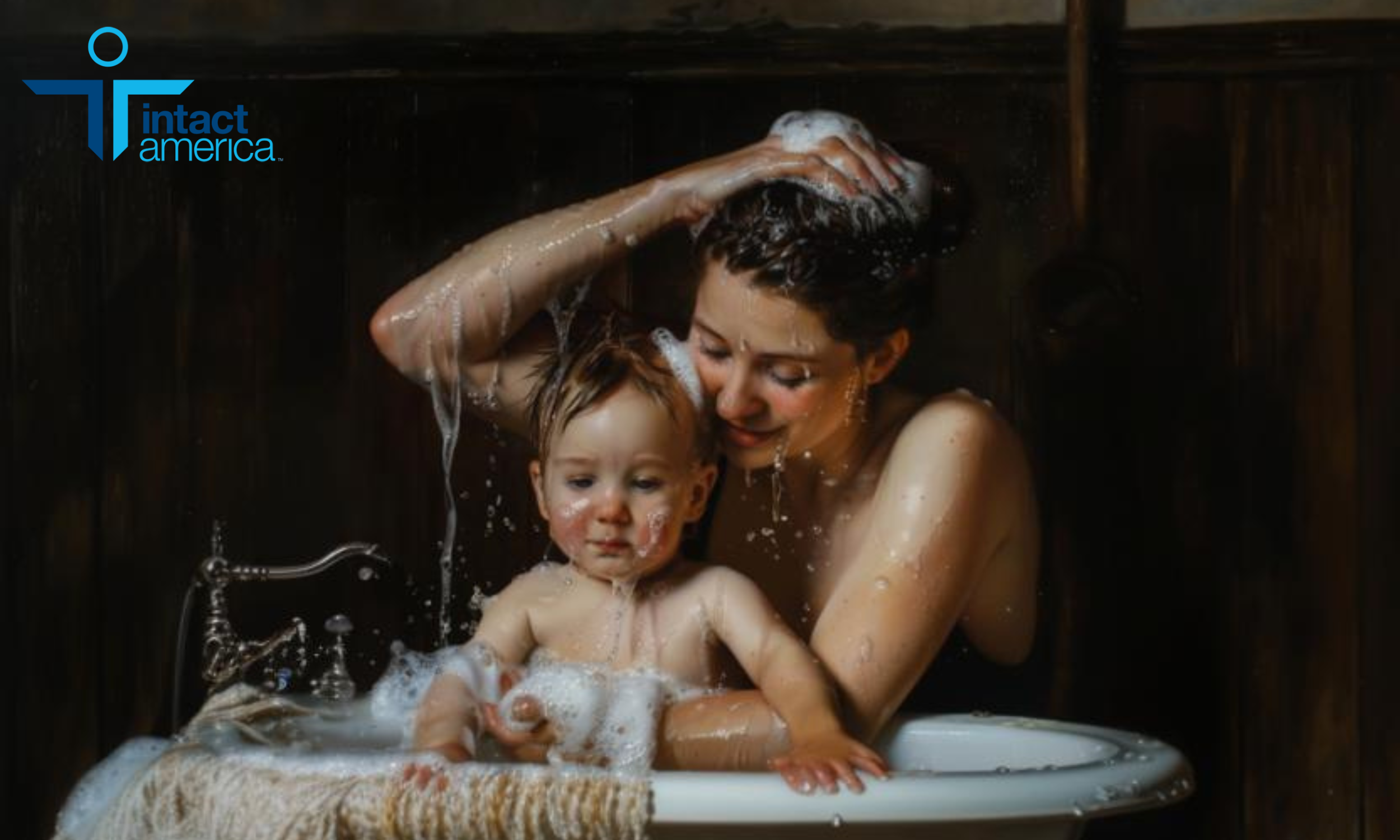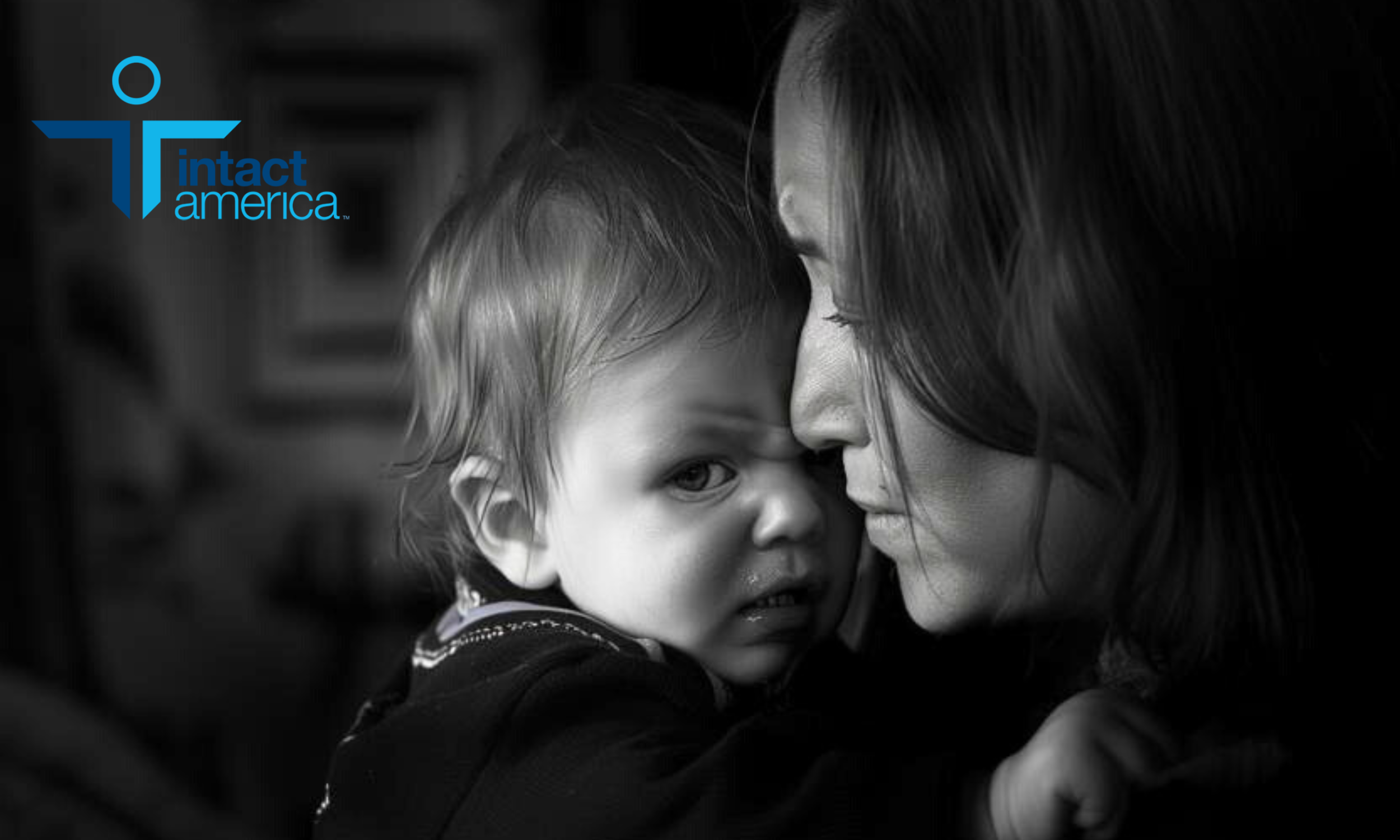Every mother, every parent, looks back on things we regret doing or failing to do for our children. Probably one of the most common parental regrets is “I was too busy; I didn’t spend enough time with my child” (the song Cat’s in the Cradle, by Harry Chapin, was all about this).
But I have never heard more pain and remorse than what is expressed by mothers who didn’t protect their baby sons from circumcision, and later realized the brutality their boys had suffered.
This pain, for many, never fades. The first time I was invited to talk about circumcision on a radio program that accepted call-ins, a woman who I’ll call Bea came on the line and began to recount her experience. In a shaky voice, Bea said she’d never thought or even heard about circumcision until a nurse came to her in the hospital while she was holding her newborn son, and asked her to hand him over. At this point in the story Bea began to cry. “The nurse told me it was time for him to be circumcised – and she was going to give him that gift. She took my baby away.” She paused. “And then I heard the scream. I will never, ever forget that scream; it was like nothing I’d heard before or since. A few minutes later, the nurse brought me my son – and he was a different person.” Bea went on to say that before he was taken away, her baby had been awake and calm, and making eye contact with her. After he was circumcised, he was disassociated, refused to nurse, and was later inconsolable when he cried. The first time she changed his diaper and “saw what they had done,” Bea said she “wanted to die.”
I asked, “How is your son now?”
“He’s fine,” she said. “But I am not. I feel guilty every single day.”
“How old is he?” I asked, envisioning a baby, or maybe a young toddler.
“He’s 28,” she said.
I thought of my own son, who was also at the time of this conversation, 28 years old. I reflected on how lucky I am to have had the information I needed to protect him from circumcision, to have had the support of his father, and – unlike Bea and so many other mothers I have met – to have escaped pressure from doctors, nurses, or others intent on perpetuating this horrible custom.
But why should I have been surprised that, 28 years later, Bea’s trauma remained as acute as ever? Marilyn Milos, my close friend and the “mother of the intactivist movement” has worked every day for the past 35 years to save babies from circumcision, and their mothers from the pain and remorse she feels for having ignorantly acquiesced to having her three sons’ circumcised (Marilyn awareness and trauma began when – as a newly trained nurse – she witnessed her first circumcision). Marilyn’s grown sons, like Bea’s son, are “fine” and have forgiven her – but Marilyn, Bea and so many mothers I have heard from since that radio program, have not forgiven themselves and remain haunted, decades later.
What could I say to Bea? I said the words I learned from Marilyn: “You didn’t know any better, so you couldn’t do any better. Now you know, so speak up and speak out to save babies, and to save other mothers from this regret.”
Happy Mother’s Day to Bea, Marilyn and all mothers who – whether out of ignorance or fear or pure bad luck – were unable to protect their sons from circumcision. Happy Mother’s Day, and good karma, to every mother who tells the truth about circumcision. Live in peace.
by
Georganne Chapin





